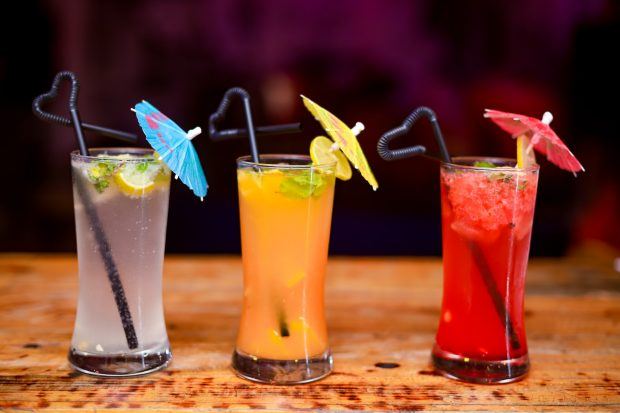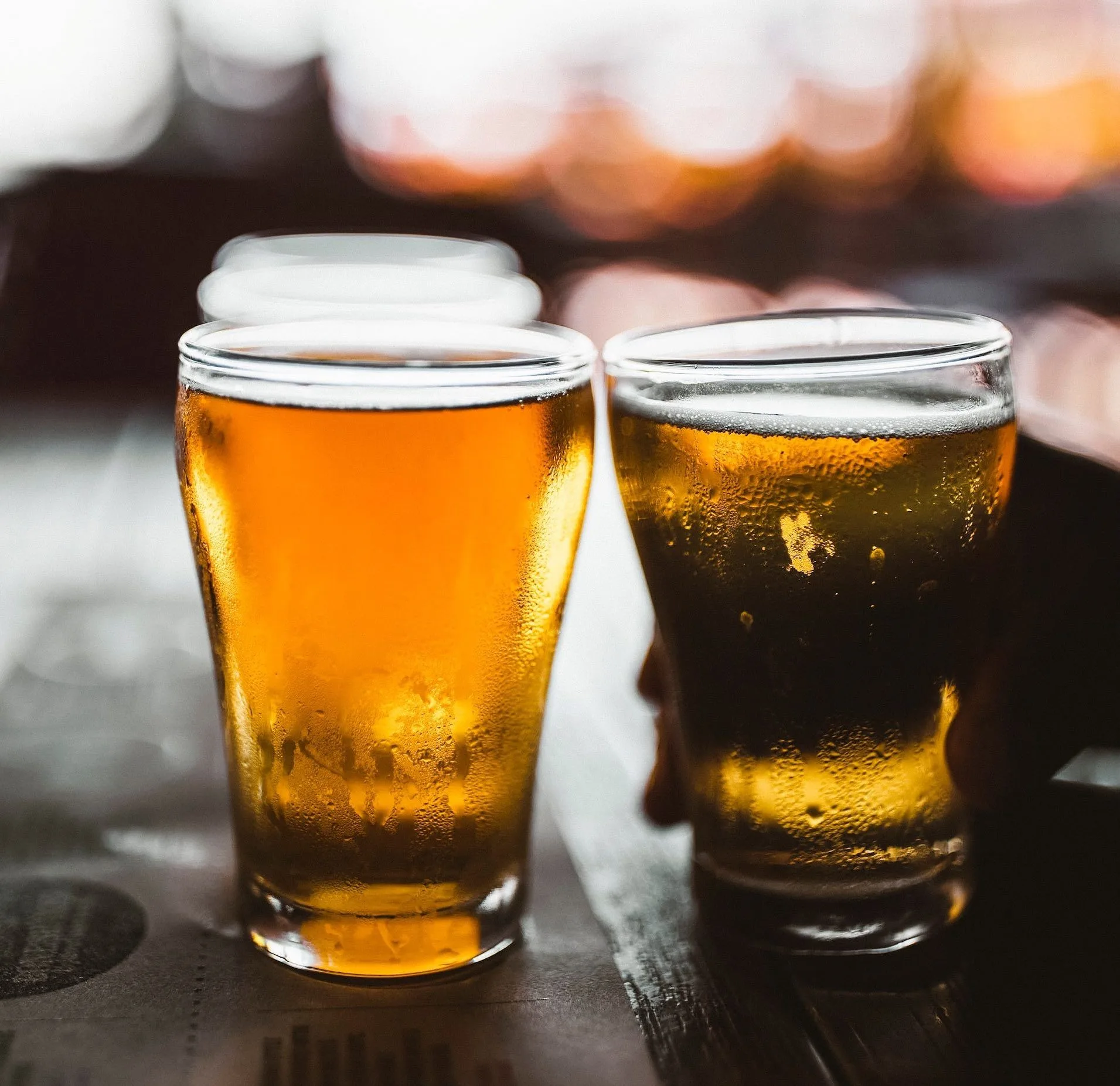It’s no secret that alcohol is bad for us and our health. In fact, the World Health Organization (WHO) describes alcohol as a “toxic and psychoactive substance that contributes to 3 million deaths each year globally and… 5% of the global burden of disease.”
Now beer manufacturers are responding to the need for healthier alcoholic beverage choices.
Non-alcoholic beverages still contain traces of alcohol
From dehydration, high blood pressure, a weakened immune system, an increased risk of breast and liver cancer, and the dreaded weight gain, alcohol has never been a friend. As the world becomes more health conscious, alcohol companies seem to finally be catching up. Beer manufacturers, for instance, have introduced 0% alcohol alternatives.
Now, what does this mean for beer lovers? What are the benefits and why should you consider making the switch and how can it help with weight loss? But first things first, just how non-alcoholic is 0% beer?
According to the US Food and Drug Administration (FDA), beverages can state that they are non-alcoholic, as long as the alcohol by volume (ABV) doesn’t exceed the 0.5% limit. Now, before you freak out, it is important to be aware that there are trace amounts of alcohol in foods and beverages that we consume on a daily basis, all thanks to fermentation.
In fact, the Journal of Analytical Toxicology found measurable alcohol in everyday foods and drinks such as bananas, apple juice, and bread. So, although this non-alcoholic alcohol may contain some alcohol, it’s not enough to get you buzzed or negatively impact you.
So, just how can non-alcoholic beer benefit your weight-loss journey?
Firstly, it aids in better recovery and muscle healing after exercising. It is well-established that alcohol disrupts protein synthesis and induces insulin resistance. Furthermore, alcohol is a diuretic that dehydrates your body very quickly.
Beer free of alcohol can help replace lost electrolytes and provide low-energy hydration. It also allows your muscles to heal unimpeded, directly impacting your weight loss positively.
Non-alcoholic beer has numerous health benefits
Non-alcoholic beer is said to have more than 2000 substances that contribute to the optimal and healthy functioning of your entire body.
Among these substances are vitamins. Surprisingly, this alternative contains a high index of vitamin B. This contributes to the accelerated formation of red blood cells and DNA reconstruction.
It also contains minerals including potassium, iron, and zinc, antioxidants, as well as folic acid. In fact, it is reported that this alternative contains 3 times more folic acid than milk.

Photo by Yubraj Timsina on Unsplash
In fact, this makes it a much healthier drink option compared to soft drinks, which contain high levels of sugar. The average amount of sugar in a 100ml can of non-alcoholic beer is 1.7g, compared to the sugar in a 100ml can of soft drinks, averaging 10.6g. Sugar is credited as one of the major reasons for weight gain due to it being an empty calorie, so having less of it equals losing weight becomes easier.
Fewer calories = Less weight gain
Non-alcoholic beer contains significantly fewer calories than its alcoholic counterpart and soft drinks. Non-alcoholic beer has an average of 22.6 calories per 100ml, compared to 44 calories in 100ml of alcoholic beer, and an average of 40 calories in 100ml soft drinks. Calories play a role in weight gain because you gain weight when you eat more calories than you burn.
The numbers…
Let’s make an example with statistics. South Africa has recorded an average of 60.1 liters of beer being consumed per capita per year. This directly translates to about 5 liters being consumed per month, adding up to about 220 000 calories being consumed per month, just from beer.
From a health perspective, scientists have found that one cannot burn more than 4000 calories per day, because there’s only so much the body can take. So basically, it is impossible to burn all these calories gained from alcohol consumption, which means weight gain is inescapable.
Escape the hangovers
Having non-alcoholic beer prevents those dreaded hangovers that leave you craving greasy, unhealthy food the morning after. But have you ever wondered why that happens?
William Gruchow, a professor at the University of Carolina, answers this question for us. According to his research, the explanation behind those crazy cravings after a night out is linked to a brain chemical called Galanin.
Galanin increases our appetite for fatty foods, and the production of this chemical is stimulated by triglycerides (converted calories stored in fat cells), which are released by alcohol. “By consuming large quantities of alcohol, you increase your triglycerides stimulating galanin production, which leaves you craving that English breakfast you would never look at twice.”
Satisfying these cravings means you’re eating unhealthy, fatty foods that are full of calories, which increases weight gain. This is all because you opted for alcoholic beer as opposed to its non-alcoholic counterpart.
The importance of moderation
Experts warn, however, that even though it doesn’t contain any alcohol, and is relatively better for your health, you shouldn’t overindulge in non-alcoholic beer, or treat it like your weight loss potion.
It contains more sugar than its alcoholic counterpart. This is due to the lack of taste arising from removing the alcohol. As such, one still needs to be cautious of their consumption, as weight gain could be imminent, defeating the whole purpose. So, like all good things in life, moderation is key.
MAIN IMAGE CREDIT: Photo by Teo Do Rio on Unsplash
References
-
Catarino, M. and Mendes, A., 2011. Non-alcoholic beer—A new industrial process. Separation and purification technology, 79(3), pp.342-351.
-
Sikalidis, A.K., Kelleher, A.H., Maykish, A. and Kristo, A.S., 2020. Non-alcoholic beverages, old and novel, and their potential effects on human health, with a focus on hydration and cardiometabolic health. Medicina, 56(10), p.490.
-
Morojele, N.K., Dumbili, E.W., Obot, I.S. and Parry, C.D., 2021. Alcohol consumption, harms and policy developments in sub‐Saharan Africa: The case for stronger national and regional responses. Drug and alcohol review, 40(3), pp.402-419.
-
Wijnen, A.H., Steennis, J., Catoire, M., Wardenaar, F.C. and Mensink, M., 2016. Post-exercise rehydration: effect of consumption of beer with varying alcohol content on fluid balance after mild dehydration. Frontiers in nutrition, p.45.





![women [longevity live]](https://longevitylive.com/wp-content/uploads/2020/01/photo-of-women-walking-down-the-street-1116984-100x100.jpg)









